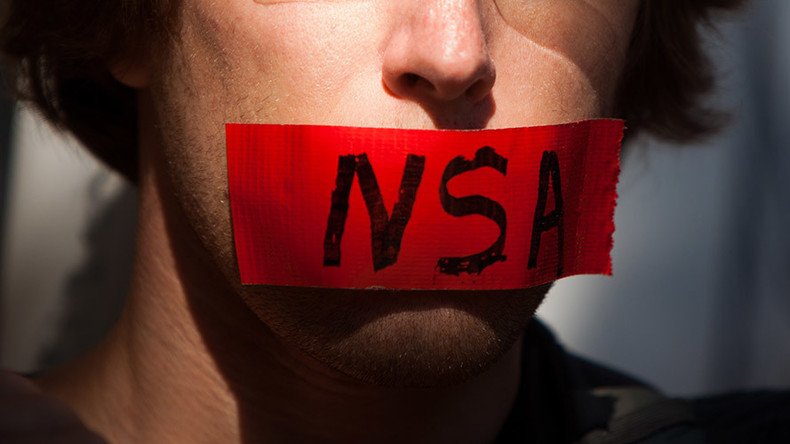California judge rules EFF can collect evidence against NSA in mass surveillance case

A US digital rights group is celebrating a “big victory” as a California judge has authorized it to conduct a discovery against the NSA and collect factual evidence of the agency’s “warrantless” surveillance.
“We had been barred from doing so since the case was filed in 2008,” the Electronic Frontier Foundation (EFF) said in a press release.
It has been eight years since the group filed its Jewel v. NSA suit, targeting the NSA on behalf of a former AT&T customer, Carolyn Jewel. According to the EFF and five plaintiffs it represents, AT&T has collected and routed copies of internet traffic to a secret room in San Francisco controlled by the NSA.
The EFF’s complaint, aimed at “NSA in cooperation with AT&T”, predated the public’s awareness of Edward Snowden, the former intelligence contractor, who exposed the agency’s surveillance operations in 2013.
US court tosses out mass surveillance case against #NSA AT&T http://t.co/1mLKi48znvpic.twitter.com/JJJYG6aUdF
— RT America (@RT_America) February 11, 2015
In 2006, a former AT&T technician Mark Klein claimed he helped to create the secure room where customer data was being collected by government agents.
Even though Jewel was eventually unable to prove that she was the victim, the EFF continues to fight for five other plaintiffs, “ordinary Americans who are current or former subscribers to AT&T’s telephone and/or internet services.”
Started as a case against AT&T, defendants in the lawsuit include the most powerful politicians in the US, such as former Vice President Dick Cheney, former President George W. Bush, and former NSA director Michael Hayden, among others.
Having gone through numerous court rejections, which have been challenging the EFF’s efforts to end the mass surveillance, the group is marking “a big step” as Judge Jeffrey White of California District Court has pushed the case forward.
“Having considered the parties papers, relevant legal authority, and the record in this case, the court grants plaintiffs’ motion to lift the court’s stay of discovery,” White wrote in his order. “The court finds the motion suitable for disposition without oral argument.”
The US government had fought all EFF’s requests to proceed with this lawsuit, arguing that state secrets’ privilege protects from disclosing its data because it poses “an unacceptable risk of disclosing state secrets.”
Judge White previously dismissed the argument citing “the Wiretap Act, the Foreign Intelligence Surveillance Act, the Electronic Communications Privacy Act, and the Stored Communications Act.”
“The court notes that any disputed materials that defendants contend may potentially run the risk of impermissible disclosure of state secret information may be disclosed ex parte for in camera review,” White reiterated on Friday.
“This ruling affirms Judge White’s previous decision and opens the door for discovery,” the EFF wrote, stressing that this is the first time a party has been allowed to “gather factual evidence” against the NSA. “EFF looks forward to finally getting to the nuts and bolts of this extraordinarily important lawsuit,” it said.












